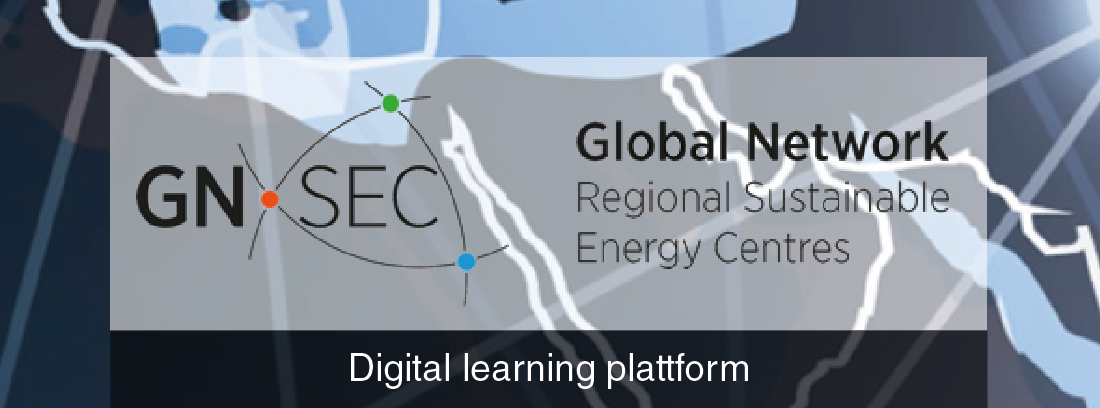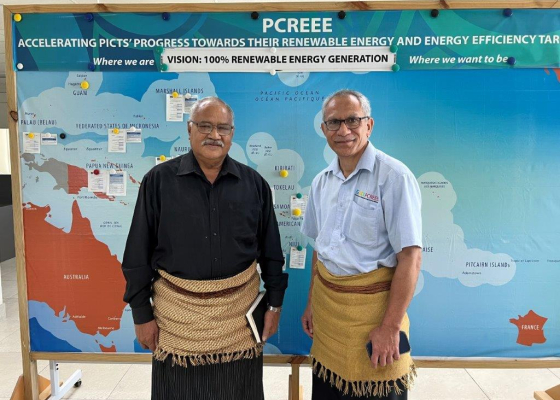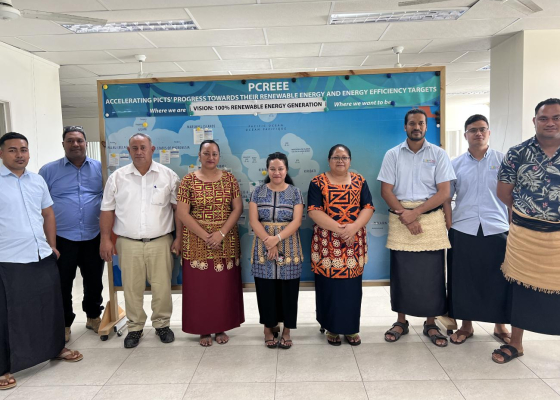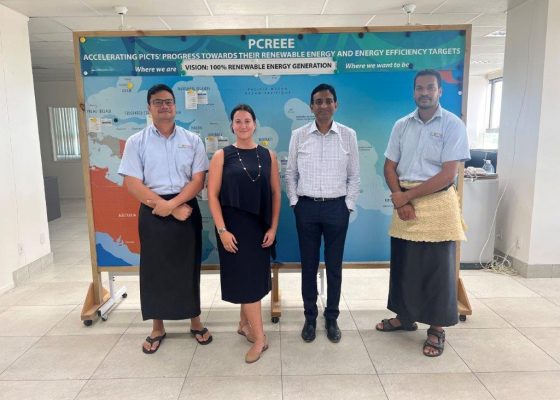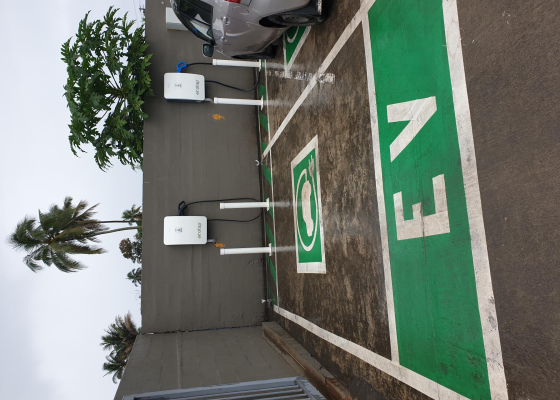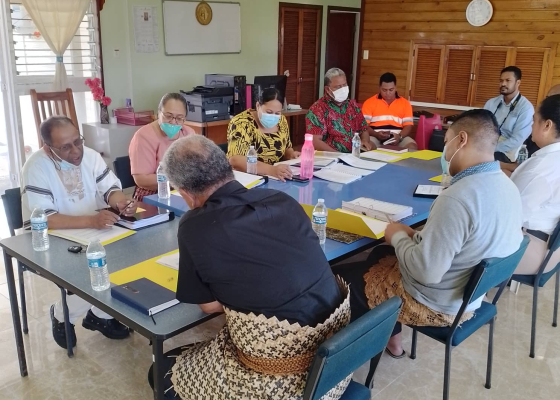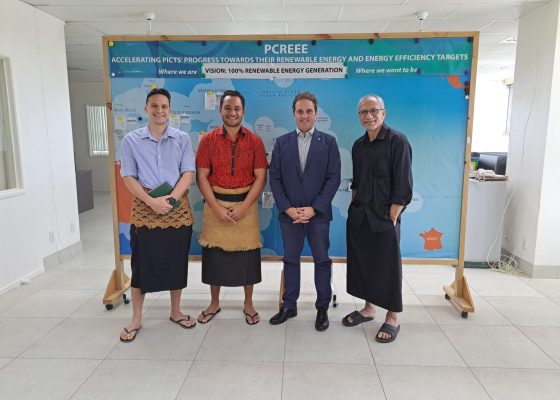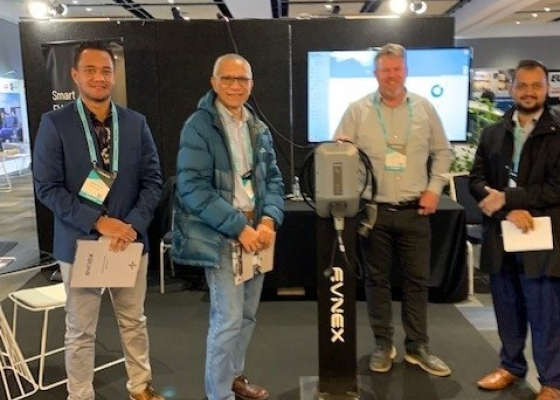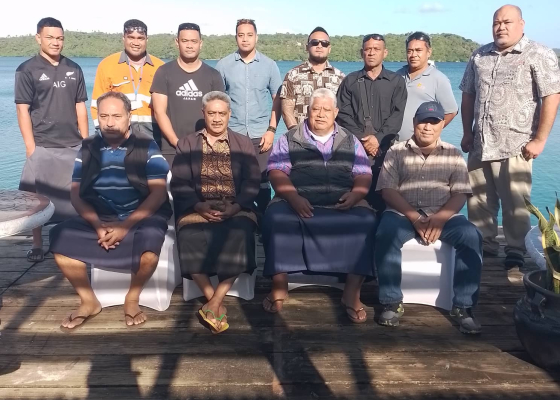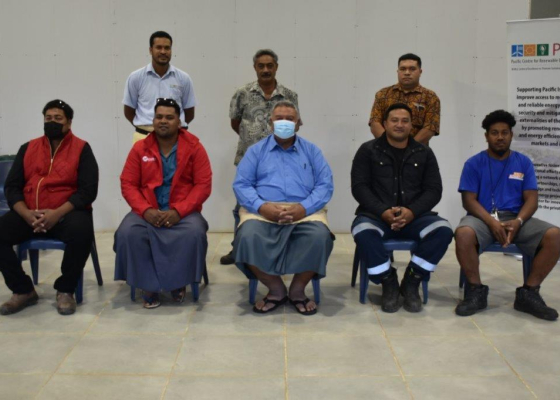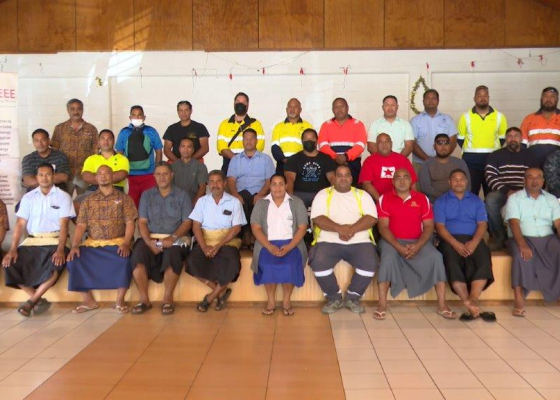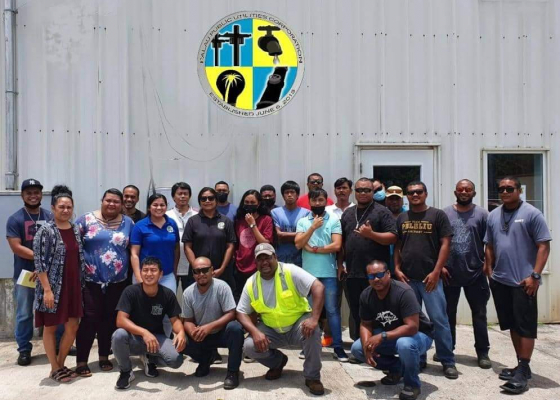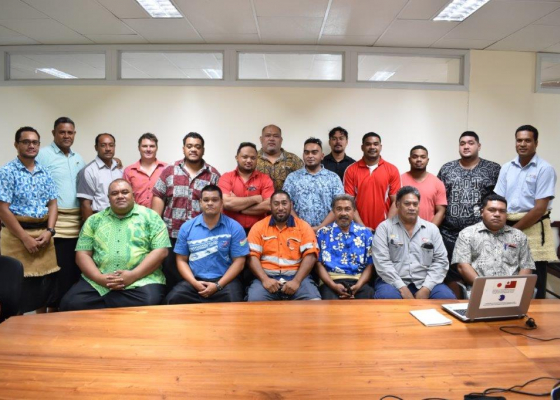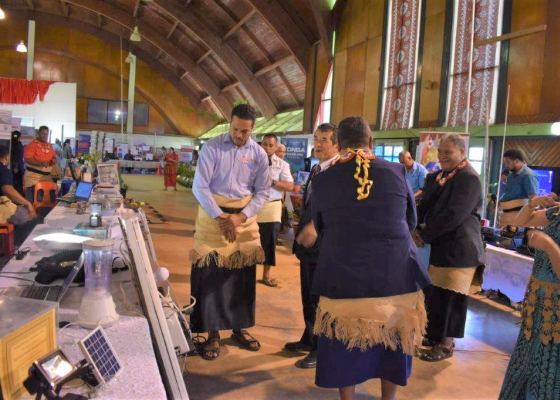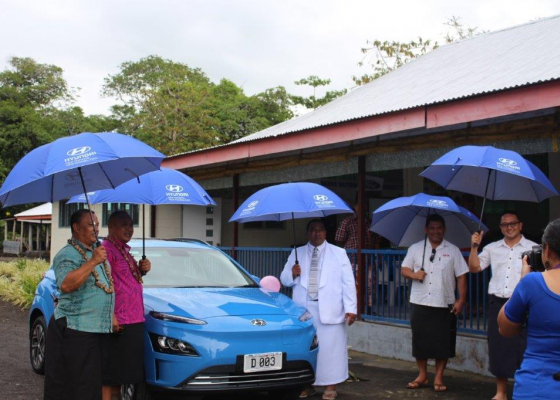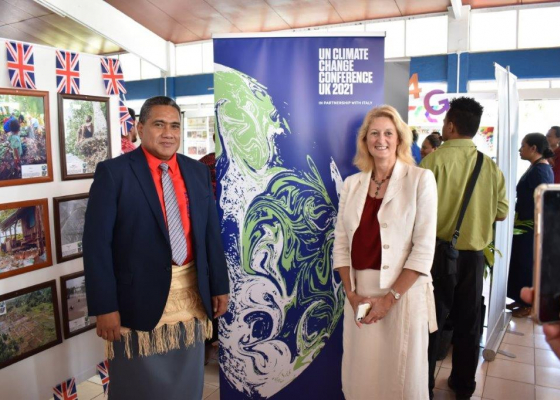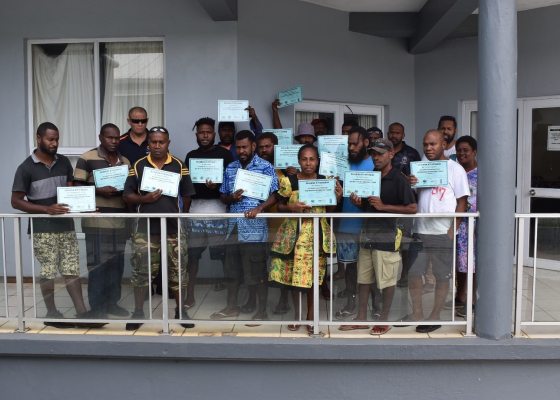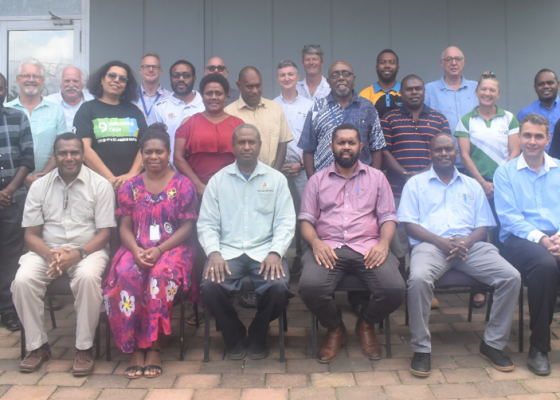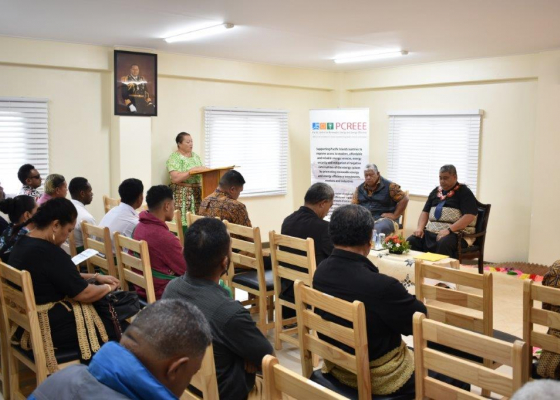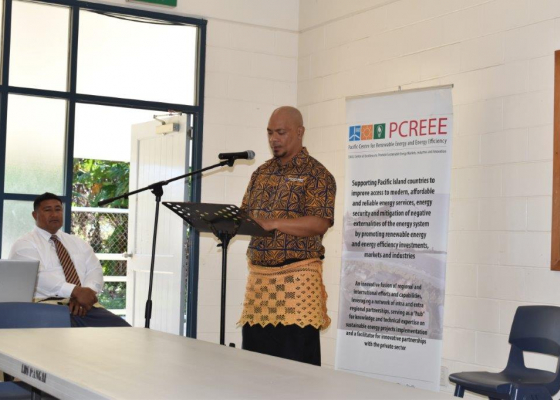Regional Roadmap for Implementing the 2030 Agenda for Sustainable Development in Asia and the Pacific
At the global level in 2015 countries set in motion the most far reaching and ambitious development agenda of our time, the 2030 Agenda for Sustainable Development. In
Asia and the Pacific, countries have already begun translating this ambitious agenda into action and many have already set up the national architecture for coordinating and promoting the implementation of the Sustainable Development Goals (SDGs). However, the policy transformations required to put countries on track to achieve the SDGs have yet to take shape across this or any other region. Business as usual policies and investments are locking countries into unsustainable pathways that will create a gap between ambition and action.
To help address this gap, cooperation and action is needed at the national, regional and international levels. Regional cooperation can support and complement the effectiveness of national mechanisms upon which the ultimate success of the global 2030 Agenda rests. Transboundary challenges such as climate change and natural disasters, energy security, ecosystem degradation, and contamination of oceans, seas and marine resources require regional actions. Transboundary infrastructure networks can help reduce vulnerability, and cooperation can help develop energy solutions and ensure environmental protection of cross-border resources and ecosystems. Regional economic cooperation and integration will facilitate better transport, energy and ICT connectivity which in turn will increase access to services such as education, health, and housing as well as electricity and markets for marginalized populations.
Recognizing these opportunities, the countries of Asia and the Pacific have developed a regional road map for implementing the 2030 Agenda for Sustainable Development
to facilitate cooperation at the regional level supported by the ESCAP Secretariat and other United Nations entities. The road map was agreed on during the 4th Asia Pacific Forum on Sustainable Development and subsequently endorsed by the ESCAP Member States via Resolution 73/9 which was adopted during ESCAP’s 73th Commission Session. The road map identifies priority areas of regional cooperation for implementation of the 2030 Agenda. These priority areas underline the major challenges still faced in our region, including leaving no one behind; disaster risk reduction and resilience; climate change; management of natural resources; connectivity; and, energy. Priority actions under the means of implementation for the 2030 Agenda are also identified in the road map, including data and statistics, technology, finance, policy coherence and partnerships.
ESCAP Member States and the Secretariat considered a number of overarching issues regarding sustainable development in the region and the achievement of the 2030 Agenda as a part of the road map drafting process.
The work of ESCAP and Member States recognized that despite achievements on reducing poverty levels with action for MDGs, poverty is still persistent in the region and limits the opportunities for well-being for a large number of people. According to the latest data, some 400 million people, or 10.3 per cent of the region’s population, were living in extreme poverty in Asia and the Pacific during the period 2010-2013. The highest income poverty rates are found among countries with special needs and lower-middle-income countries.
In addition to challenges posted by poverty, inequality is also rising in the region and threatens to disrupt efforts to achieve the 2030 Agenda. ESCAP research indicates that income inequality as well as inequality for opportunities is either on the rise or still very high without signs of improvement in most of the countries in the region. The road map responds by placing the elimination of inequality at the center of the region’s development path.
Quality of governance and the effectiveness of public institutions are also crucial for the successful implementation of the 2030 Agenda and therefore recognized in the road map. Effective governance, and especially in its normative dimension, is a basis for reinstituting the state and the society towards achieving sustainable development. It is a principle means to enable voices of people and participation in an effective, transparent and results oriented decision-making process. Effective governance allows people to be the driving force for sustainable development.
As recent ESCAP research shows, governance also affects the capacity of an economy to gain access and manage better human and natural resources, improve investment prospects and sustain innovation. Additionally, effective governance is pivotal for efforts to close development gaps across countries by supporting reforms that enable countries with special needs to benefit more from regional economic integration initiatives.
All these aspects of governance are fundamental for improving the performance and effectiveness of national and regional development systems and therefore to contribute to the achievement of SDGs.
Acknowledging that promoting sustainable development in Asia Pacific is the most pervasive and lasting solution for meeting today’s challenges and delivering durable peace and stability in our region, this road map recognizes that sustainable development must be underpinned by peaceful and inclusive societies, and also places gender equality and women’s economic empowerment as a central issue in the regional policy agenda.
The Secretariat will follow up and support member states on implementing this road map as requested. It will continue to provide annual updates and recommendations to Member States, including through the Asia-Pacific Forum on Sustainable, with its reports on implementing the 2030 Agenda in the region including, but not limited to, thematic and statistical reports as well as reports on inequality and social development. It will also strengthen support to Member States in their efforts to implement the 2030 Agenda in an integrated approach, inter alia, with analytical products, technical services and capacity-building initiatives through knowledgesharing products and platforms. The Secretariat is establishing an SDG Helpdesk and a Rapid Response Facility that will make available implementation models to support key aspects of SDG implementation that span across the different thematic areas that have been identified in the regional road map.
The Secretariat will give particular attention to effectively using the means of implementation for the 2030 Agenda, while it has already realigned its programme of work and strategic framework to make this happen. Effective use of financing for development, trade, science, technology and innovation (STI) and data and statistics will define the success of SDGs implementation. On financing for development there is an opportunity to translate the concrete policies and actions as outlined in the outcome document of the Third International Conference on Financing for Development to implement the SDGs. Trade has considerable potential to boost implementation of SDGs, but there are still challenges to fully harness this potential; the road map identifies specific areas of work that can tackle obstacles and create opportunities. In the context of STI, the success of implementing the 2030 Agenda will be depend inter alia on Member States’ ability to collaborate and create open and inclusive knowledge economies. With regard to data and statistics, without credible figures and indicators it will be impossible to review progress on SDG implementation and, consequently, improve performance. With eighty-eight of the global SDG indicators lacking methodological guidelines or standards, action on strengthening the statistical capacities of member states are urgently needed. ESCAP’s long-standing programmes in each of these areas are being strengthened to ensure that member States are well-supported as they go forward, and that the actions across means of implementation are mutually supportive.
With this regional road map, ESCAP member States have set the course for transforming the region and delivering inclusive and sustainable development in Asia and the Pacific. Their success will define the global success of the 2030 Agenda.
Upcoming Events
-
03/02/2026 to 03/03/2026
-
03/25/2026 to 03/26/2026
-
04/09/2026 to 04/10/2026
-
04/27/2026
-
04/27/2026 to 04/29/2026






